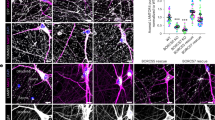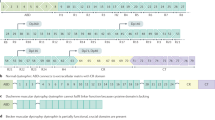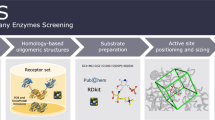Abstract
TOM70 is a member of the TOM complex that transports cytosolic proteins into mitochondria. Here, we identified two compound heterozygous variants in TOMM70 [c.794C>T (p.T265M) and c.1745C>T (p.A582V)] from a patient with severe anemia, lactic acidosis, and developmental delay. Patient-derived immortalized lymphocytes showed decreased TOM70 expression, oligomerized TOM70 complex, and TOM 20/22/40 complex compared with expression in control lymphocytes. Functional analysis revealed that patient-derived cells exhibited multi-oxidative phosphorylation system (OXPHOS) complex defects, with complex IV being primarily affected. As a result, patient-derived cells grew slower in galactose medium and generated less ATP and more extracellular lactic acid than did control cells. In vitro cell model compensatory experiments confirmed the pathogenicity of TOMM70 variants since only wild-type TOM70, but not mutant TOM70, could restore the complex IV defect and TOM70 expression in TOM70 knockdown U2OS cells. Altogether, we report the first case of mitochondrial disease-causing mutations in TOMM70 and demonstrate that TOM70 is essential for multi-OXPHOS assembly. Mutational screening of TOMM70 should be employed to identify mitochondrial disease-causing gene mutations in the future.
This is a preview of subscription content, access via your institution
Access options
Subscribe to this journal
Receive 12 print issues and online access
$259.00 per year
only $21.58 per issue
Buy this article
- Purchase on Springer Link
- Instant access to full article PDF
Prices may be subject to local taxes which are calculated during checkout




Similar content being viewed by others
References
Craven L, Alston CL, Taylor RW, Turnbull DM. Recent advances in mitochondrial disease. Annu Rev Genom Hum Genet. 2017;18:257–75.
Gorman GS, Chinnery PF, DiMauro S, Hirano M, Koga Y, McFarland R, et al. Mitochondrial diseases. Nat Rev Dis Prim. 2016;2:16080.
Cogliati S, Frezza C, Soriano ME, Varanita T, Quintana-Cabrera R, Corrado M, et al. Mitochondrial cristae shape determines respiratory chain supercomplexes assembly and respiratory efficiency. Cell. 2013;155:160–71.
Strauss KA, Jinks RN, Puffenberger EG, Venkatesh S, Singh K, Cheng I, et al. CODAS syndrome is associated with mutations of LONP1, encoding mitochondrial AAA+ Lon protease. Am J Hum Genet. 2015;96:121–35.
Wortmann SB, Vaz FM, Gardeitchik T, Vissers LE, Renkema GH, Schuurs-Hoeijmakers JH, et al. Mutations in the phospholipid remodeling gene SERAC1 impair mitochondrial function and intracellular cholesterol trafficking and cause dystonia and deafness. Nat Genet. 2012;44:797–802.
Frazier AE, Thorburn DR, Compton AG. Mitochondrial energy generation disorders: genes, mechanisms, and clues to pathology. J Biol Chem. 2019;294:5386–95.
Taylor RW, Pyle A, Griffin H, Blakely EL, Duff J, He L, et al. Use of whole-exome sequencing to determine the genetic basis of multiple mitochondrial respiratory chain complex deficiencies. JAMA. 2014;312:68–77.
Chacinska A, Koehler CM, Milenkovic D, Lithgow T, Pfanner N. Importing mitochondrial proteins: machineries and mechanisms. Cell. 2009;138:628–44.
Wiedemann N, Pfanner N. Mitochondrial machineries for protein import and assembly. Annu Rev Biochem. 2017;86:685–714.
Neupert W, Herrmann JM. Translocation of proteins into mitochondria. Annu Rev Biochem. 2007;76:723–49.
Vukotic M, Nolte H, Konig T, Saita S, Ananjew M, Kruger M, et al. Acylglycerol kinase mutated in sengers syndrome is a subunit of the TIM22 protein translocase in mitochondria. Mol Cell. 2017;67:471–83 e7.
Kang Y, Baker MJ, Liem M, Louber J, McKenzie M, Atukorala I, et al. Tim29 is a novel subunit of the human TIM22 translocase and is involved in complex assembly and stability. Elife 2016;5:e17463.
Reyes A, Melchionda L, Burlina A, Robinson AJ, Ghezzi D, Zeviani M. Mutations in TIMM50 compromise cell survival in OxPhos-dependent metabolic conditions. EMBO Mol Med. 2018;10:e8698.
Pacheu-Grau D, Callegari S, Emperador S, Thompson K, Aich A, Topol SE, et al. Mutations of the mitochondrial carrier translocase channel subunit TIM22 cause early-onset mitochondrial myopathy. Hum Mol Genet. 2018;27:4135–44.
Roesch K, Curran SP, Tranebjaerg L, Koehler CM. Human deafness dystonia syndrome is caused by a defect in assembly of the DDP1/TIMM8a-TIMM13 complex. Hum Mol Genet. 2002;11:477–86.
Fan AC, Kozlov G, Hoegl A, Marcellus RC, Wong MJ, Gehring K, et al. Interaction between the human mitochondrial import receptors Tom20 and Tom70 in vitro suggests a chaperone displacement mechanism. J Biol Chem. 2011;286:32208–19.
Dekker PJ, Ryan MT, Brix J, Muller H, Honlinger A, Pfanner N. Preprotein translocase of the outer mitochondrial membrane: molecular dissection and assembly of the general import pore complex. Mol Cell Biol. 1998;18:6515–24.
Young JC, Hoogenraad NJ, Hartl FU. Molecular chaperones Hsp90 and Hsp70 deliver preproteins to the mitochondrial import receptor Tom70. Cell 2003;112:41–50.
Fan AC, Gava LM, Ramos CH, Young JC. Human mitochondrial import receptor Tom70 functions as a monomer. Biochem J. 2010;429:553–63.
Filadi R, Leal NS, Schreiner B, Rossi A, Dentoni G, Pinho CM, et al. TOM70 sustains cell bioenergetics by promoting IP3R3-mediated ER to mitochondria Ca(2+) transfer. Curr Biol. 2018;28:369–82.
Li Y, Wen S, Li D, Xie J, Wei X, Li X, et al. SURF1 mutations in Chinese patients with Leigh syndrome: novel mutations, mutation spectrum, and the functional consequences. Gene. 2018;674:15–24.
Calvo SE, Compton AG, Hershman SG, Lim SC, Lieber DS, Tucker EJ, et al. Molecular diagnosis of infantile mitochondrial disease with targeted next-generation sequencing. Sci Transl Med. 2012;4:118ra10.
Fang H, Hu N, Zhao Q, Wang B, Zhou H, Fu Q, et al. mtDNA haplogroup N9a increases the risk of type 2 diabetes by altering mitochondrial function and intracellular mitochondrial signals. Diabetes. 2018;67:1441–53.
Wittig I, Braun HP, Schagger H. Blue native PAGE. Nat Protoc. 2006;1:418–28.
Birch-Machin MA, Turnbull DM. Assaying mitochondrial respiratory complex activity in mitochondria isolated from human cells and tissues. Methods Cell Biol. 2001;65:97–117.
Ferramosca A, Zara V. Biogenesis of mitochondrial carrier proteins: molecular mechanisms of import into mitochondria. Biochim Biophys Acta. 2013;1833:494–502.
Kato H, Lu Q, Rapaport D, Kozjak-Pavlovic V. Tom70 is essential for PINK1 import into mitochondria. PLoS ONE. 2013;8:e58435.
Backes S, Hess S, Boos F, Woellhaf MW, Godel S, Jung M, et al. Tom70 enhances mitochondrial preprotein import efficiency by binding to internal targeting sequences. J Cell Biol. 2018;217:1369–82.
Mayr JA, Haack TB, Graf E, Zimmermann FA, Wieland T, Haberberger B, et al. Lack of the mitochondrial protein acylglycerol kinase causes Sengers syndrome. Am J Hum Genet. 2012;90:314–20.
Thompson K, Mai N, Olahova M, Scialo F, Formosa LE, Stroud DA, et al. OXA1L mutations cause mitochondrial encephalopathy and a combined oxidative phosphorylation defect. EMBO Mol Med. 2018;10:e9060.
Acknowledgements
This work has been made possible by the National Natural Science Foundation of China (key program, 81830071; emergency program, 81741061); Zhejiang Provincial Natural Science Foundation of China (LY19H040004); the Key Discipline of Zhejiang Province in Medical Technology (First Class, Category A).
Author information
Authors and Affiliations
Contributions
JL and YY planned the project and designed the experiments. YY collected samples. XW, MD, JX, TL, KZ, YZ, JL, DC, PX, MJ and HF performed the biochemical experiments. HF and XW wrote the manuscript.
Corresponding authors
Ethics declarations
Conflict of interest
The authors declare that they have no conflict of interest.
Additional information
Publisher’s note Springer Nature remains neutral with regard to jurisdictional claims in published maps and institutional affiliations.
Rights and permissions
About this article
Cite this article
Wei, X., Du, M., Xie, J. et al. Mutations in TOMM70 lead to multi-OXPHOS deficiencies and cause severe anemia, lactic acidosis, and developmental delay. J Hum Genet 65, 231–240 (2020). https://doi.org/10.1038/s10038-019-0714-1
Received:
Revised:
Accepted:
Published:
Issue Date:
DOI: https://doi.org/10.1038/s10038-019-0714-1
This article is cited by
-
The Fe–S cluster assembly protein IscU2 increases α-ketoglutarate catabolism and DNA 5mC to promote tumor growth
Cell Discovery (2023)
-
Pathophysiological involvement of host mitochondria in SARS-CoV-2 infection that causes COVID-19: a comprehensive evidential insight
Molecular and Cellular Biochemistry (2023)
-
Mechanisms of mitochondrial respiratory adaptation
Nature Reviews Molecular Cell Biology (2022)
-
SARS-CoV-2 Orf9b suppresses type I interferon responses by targeting TOM70
Cellular & Molecular Immunology (2020)



